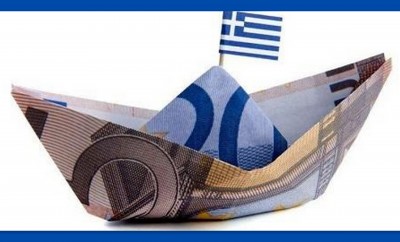
Can Europe save the euro;
Desmond Lachman
Time is running out for Europe to save the euro. This is not simply because the euro straitjacket has stifled European economic growth and increased economic divergence between the eurozone’s north and south. It is also because Europe’s dismal economic performance has given rise to the fragmentation of its politics and to heightened political tensions between its core countries and its periphery.
European policymakers would be ignoring, at their peril, the downward economic and political spiral in which the eurozone now seems to find itself. If left unaddressed, Europe’s continued spiral could tear the euro apart, as rapidly declining political support for the euro across the continent would underline.
At the heart of Europe’s current economic and political malaise is its highly disappointing economic performance since the global economic recession in 2008-2009. At a time that the United States economy is now some 10 percent above its pre-2008 peak, the overall eurozone economy has barely recovered its 2008 level. Worse yet, key eurozone countries like Italy and Spain find their economies still some 6 to 7 percent below their 2008 pre-crisis peak while their youth unemployment levels remain uncomfortably above 35 percent.
Against this dismal economic background, it is little wonder that across the eurozone, support for establishment political parties has crumbled and anti-euro sentiment has gained traction. In Italy, for example, ahead of an important constitutional referendum in November, the populist Five Star Movement, which is strongly opposed to the euro, has now pulled even with the ruling Democratic Party.
Meanwhile, in France, Marine Le Pen of the far-right National Front, which too is against the euro, is widely expected to make it to the second round in the French presidential elections next April and May. Similarly, in Greece, Portugal and Spain support for the traditional centrist political parties has collapsed, which has forced the formation of weak coalition governments in those countries.
A principal source of deep political resentment in Europe’s peripheral countries is that they have been forced by Brussels, at the behest of its German taskmaster, to adopt very restrictive budgetary policies. They have been forced to do so both to restore international competitiveness as well as to put their public finances on a sounder footing. This in turn has severely stifled these economies. Since stuck in a Euro straitjacket, those countries have been precluded from using an independent monetary and exchange rate policy to cushion the adverse economic effects of budget tightening.
The deep economic and political problems now confronting Italy, the eurozone’s third largest economy, epitomize the challenges to keeping the euro together. Since the adoption of the euro in 1999, the Italian economy has barely grown. This has contributed to acute strains in its banking system where nonperforming loans have now risen to 360 billion euros or as much as 18 percent of the banks’ total loan portfolio. Meanwhile, despite years of budget austerity, Italy’s public debt to gross domestic product ratio has risen to over 130 percent.
The political fallout from years of highly disappointing economic performance is soon to be tested at the Italian polls. At a yet-to-be-specified date in November, Italy is scheduled to hold a referendum on constitutional reform, mainly involving a proposed streamlining of its two-chamber parliament. With Prime Minister Matteo Renzi committed to resigning should he lose the referendum, the opposition has converted this referendum into a vote of no- confidence on the government.
A no vote in that referendum could usher in a prolonged period of Italian political uncertainty. Such uncertainty is the last thing that Italy now needs since it would hardly instill confidence in either Italy’s bank depositors or its sovereign debt holders.
The reason that European policymakers should fear a period of prolonged Italian political uncertainty is not simply that the Italian economy is already very weak and that its banks are on the cusp of a full blown crisis. Rather it is that, unlike was the case in Greece, Ireland and Portugal, Italy is simply too large to be saved through loans from the European Monetary System or through bond-buying by the European Central Bank.
European policymakers would now seem to have a clear choice. They can either choose to move towards a closer economic and political union while at the same time overhauling policies with a view to promoting economic growth in Europe’s economic periphery. Alternatively they can choose to continue with a business as usual approach at the risk of deepening Europe’s political and economic problems that might put the euro’s very existence at risk.
Hopefully, Europe’s recent Brexit shock will have served as a wake-up call to European policymakers as to the risks to the European project itself, which will galvanize them to make the right choice.
Πηγή:American Enterprise Institute




